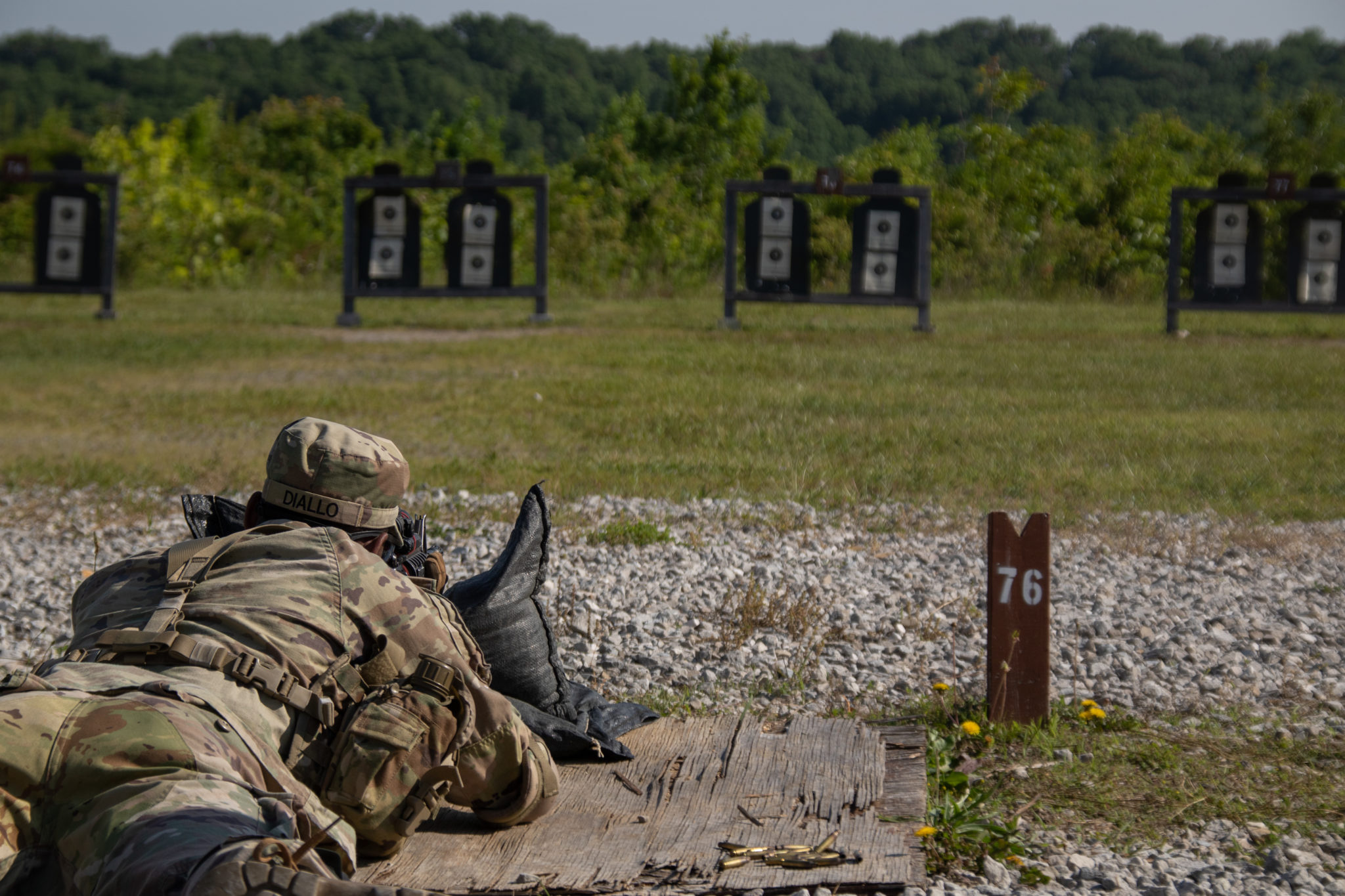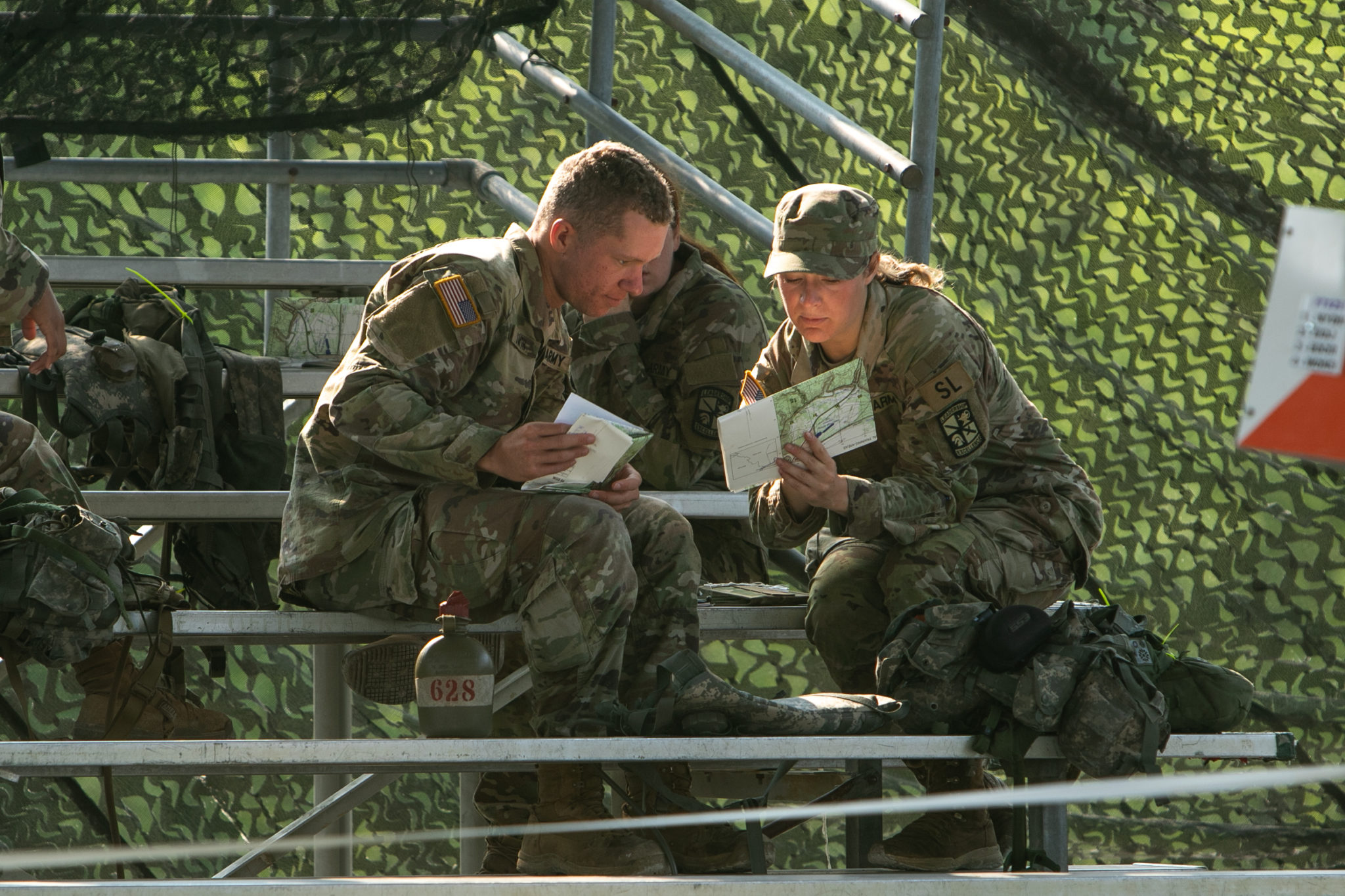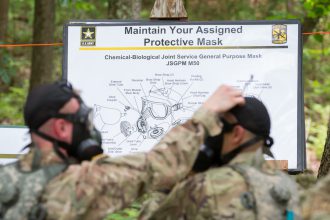
Chemical-Biological Joint Service General Purpose Masks (JSGPM M50) were used for the ‘Chemical, Biological, Radiological, and Nuclear’ (CBRN) training, Fort Knox, Ky., June 6, 2019. | Photo by Kyle Crawford, CST Public Affairs Office
FORT KNOX, Ky. — Weather may have kept 3rd Regiment Delta Company out of the confidence chamber, but it did not keep them from learning.
While the Confidence Chamber may be the exciting part of chemical, biological, radiological and nuclear (CBRN) defense training, 3rd Regiment Delta Company learned there was a lot more that went into CBRN and what it means for the Army.
Staff Sgt. Scott Dimmick of the 22nd CBRNE (Explosive) unit out of Fort Bliss, Texas, oversaw the training today.
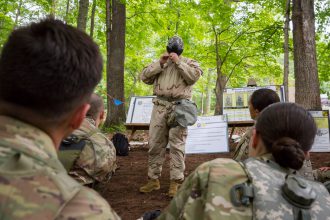
Staff Sgt. Benjamin Warner, demonstrates how to put on Joint Service Lightweight Integrated Suit Technology (JSLIST) during the ‘Chemical, Biological, Radiological, and Nuclear’ (CBRN) training, Fort Knox, Ky., June 6, 2019.| Photo by Kyle Crawford, CST Public Affairs Office
“I think it’s important for the Cadets to learn, so if they choose to go CBRN they can see all aspects of how the CBRN role operates,” Dimmick said. “And the whole purpose for the Cadets to learn these tasks is for them to see how the Chemical MOS (Military Occupational Specialties) and the Chemical Corps assist maneuver units and what they’re key role is in the rest of the Army, as well as how to protect themselves.”
The Cadets were taught the eight basic tasks when reacting to a chemical, biological, or nuclear attack. This included being able to put on their gas masks in under nine seconds, don the full MOPP (Mission Oriented Protective Posture) IV gear, which includes the mask, gloves, boot covers, hood and suit, in under eight minutes, how to properly decontaminate skin, mark contaminated areas, and other important tasks when dealing with these kinds of attacks.
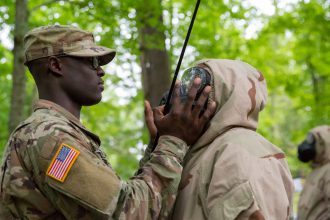
2nd Lt. Olaoluwa Douglas (Left) assists a Cadet from 3rd Regiment Advanced Camp with putting on Joint Service Lightweight Integrated Suit Technology (JSLIST) during the ‘Chemical, Biological, Radiological, and Nuclear’ (CBRN) training, Fort Knox, Ky., June 6, 2019.| Photo by Kyle Crawford, CST Public Affairs Office
Robert Young, an Atlanta, Georgia, native, and Cadet from the University of North Georgia gave his thoughts on what the training meant to him and the rest of the future officers.
“I think it’s extremely important because CBRN is a basic soldiering task,” Young said. “Everyone needs to have that baseline knowledge of what to do in certain scenarios, so it’s good to have that experience.”
Matthew Bartlett from San Antonio, Texas, also noted the connection between officers and soldiers when it comes to CBRN defense.
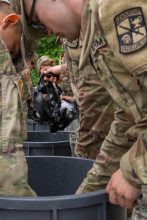
Cadets from 3rd Regiment Advanced Camp wash their gas masks during the ‘Chemical, Biological, Radiological, and Nuclear’ (CBRN) training, Fort Knox, Ky., June 6, 2019. | Photo by Kyle Crawford, CST Public Affairs Office
“I also think CBRN is important because the enlisted side has to do it, so it’s important to form that cohesion between enlisted and the officers,” the University of Texas at San Antonio Cadet said. “And making us go through the same things they do allows them to make that connection with us future officers.”
Alec Farrell, a Cadet from the University of Minnesota, offered some advice for future Cadets going through CBRN training.
“You are meant to succeed and the standards aren’t too bad if you look at them,” the Bloomington, Minnesota native said. “So, keep a positive mindset, stay focus and be faithful in yourself and your equipment.”

